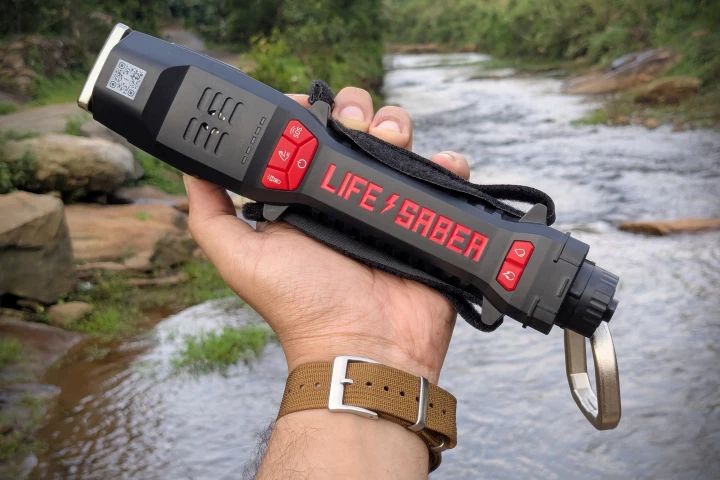The phenomenon of microdosing hit the mainstream in 2015 after an influential Rolling Stone article revealed a new trend amongst young Silicon Valley professionals of taking tiny sub-perceptual doses of psychedelics on a regular basis. The idea being that small doses of psychedelics such as LSD can result in enhancements to productivity, creativity, mental well-being and energy. The key to microdosing is that these doses are so small they do not manifest in conventional "psychedelic" effects, and the general rule of microdosing is that if you feel it you have taken too much.
Psychedelic medicine is undoubtedly undergoing a renaissance, with research into psilocybin for depression and MDMA for PTSD both on the cusp of final approvals. However, microdosing has yet to receive the same clinical attention, primarily due to the challenges of obtaining legal approval for legitimate clinical trials.
From an anecdotal and citizen scientist perspective, microdosing has been flourishing for a few years. Alongside massive internet communities continually sharing subjective information, there are plenty of young science or technology journalists who have decided to do a gonzo microdosing story. Amidst all of this noise, some scientists are trying to systematically understand whether this new self-administered drug-taking phenomenon is anything more than a glorified placebo.
Vince Polito and Richard Stevenson, from Australia's Macquarie University, have just published a fascinating observational, longitudinal study tracking the experiences of nearly 100 microdosing subjects over six weeks. While this research of course suffers from the usual problematic limitations inherent to most self-reported observational research, the pair of scientists conducted a second study, investigating user expectations, to try and compare the reported microdose experiences to subjective expectations.
In the first part of the study the researchers followed 98 participants for six weeks. As well as pre- and post-study evaluations, participants filled out brief daily reports rating different feelings, such as happiness, focus and creativity. The majority of the subjects followed were microdosing with either LSD or psilocybin. The researchers did not direct the participants in how to structure their microdose regime, and whilst the conventional strategy is to consume a dose every three days, here the average time between doses across all participants was 6.7 days.
Day to day responses revealed reported improvements in focus and productivity, and decreases in stress and depression. Interestingly, these psychological improvements tended to peak on the day of a microdose and dissipated over the following days. The pre- and post-study evaluations did identify some long-term variable changes in attention and mental health, but they seemed to stand apart from the more short-term dosage effects.
"There seems to be two different sets of effects from microdosing," lead author on the study Vince Polito explains to New Atlas. "There is a direct, dose related effect that seems to last only 24 hours or so. But then it seems there may also be an additional cumulative effect of regular ingestion of doses over a long time period."
Perhaps one of the most unexpected results seen in this first part of the study was reports of small increases in neuroticism. This little reported negative effect is not often anecdotally discussed in microdosing communities and Polito hypothesizes it could be related to an overall increase in a person's intensity of emotions.
"The neuroticism finding was quite surprising," explains Polito. "This is counter to the majority of claims in popular accounts of microdosing and also inconsistent with some of the research showing positive personality change following treatment with high dose psychedelics."
"[This] increase in neuroticism may be a result of people generally being more aware and in touch with their emotions when microdosing. So, rather than a change in the frequency of negative emotions, this may reflect people noticing their existing emotional variation more."
The second aspect of the study set out to examine the expectations people have of microdosing. Here, 263 subjects completed a comprehensive questionnaire investigating individual expected effects of microdosing. A little over half of these subjects reported never personally experiencing microdosing before.
It is here the research delivered its most novel and intriguing results. If we were to assume a heavy placebo effect or expectancy bias to play a part in the effects of microdosing then these perceived expectations should be relatively in sync with the actual experiences of microdosing participants. However, this was not the case. The largest changes experientially reported in the first part of the study were actually not in areas most surveyed participants expected to see changes. And the biggest expected effects from microdosing were found to be barely notable in the experience reports.
Creativity was one of those fascinating markers that scored high in expectation surveys but actually demonstrated almost non-existent changes in the experiential results. While these details certainly place the research at odds with a great deal of anecdotal reporting, Polito suggests they affirm that microdosing is more than just a placebo delivery system validating people's beliefs.
"If the effects of microdosing were entirely driven by expectations we should have seen increases in all the variables that people most expected would change," says Polito. "That is not the pattern of results we found. That makes me think that microdosing is having an effect regardless of people's beliefs."
The interesting discordancy between expectations and effects revealed in Polito and Stevenson's work does imply microdosing may be more than just a homeopathic iteration of psychedelic medicine. Of course, the only way to truly answer these questions would be to undertake a large, randomized trial with a blind placebo control. Unfortunately, no one has managed to overcome the legal or bureaucratic hurdles needed to complete such a trial.
A team of UK researchers is currently working on an incredibly novel microdosing trial with an intriguing self-blinded system. The trial is relying on citizen microdosers to take part in the self-blinded study where microdoses are placed into non-transparent gel capsules and put into envelopes. A volume of empty capsules are also produced and placed into envelopes. QR codes on the envelopes track whether they contain active or placebo doses, so the participants will not know at any given moment whether they are taking placebo capsules or microdoses.
The fascinating trial is still running and open to new recruits. The scientists, based at Imperial College London, hope that with a large enough sample set they will be able to answer a variety of lingering questions over exactly how effective microdosing actually is.
It's still yet to be established whether microdosing is akin to a homeopathic placebo, what kind of dose is the most effective, or if it is even safe to consistently consume small doses of psychedelics over long periods of time. Polito is reasonably confident after conducting his latest study that there are certainly some kind of effects being generated by microdosing, but exactly what they are and how they are influenced by expectations is still not clear.
The new study was published in the journal PLOS ONE.




